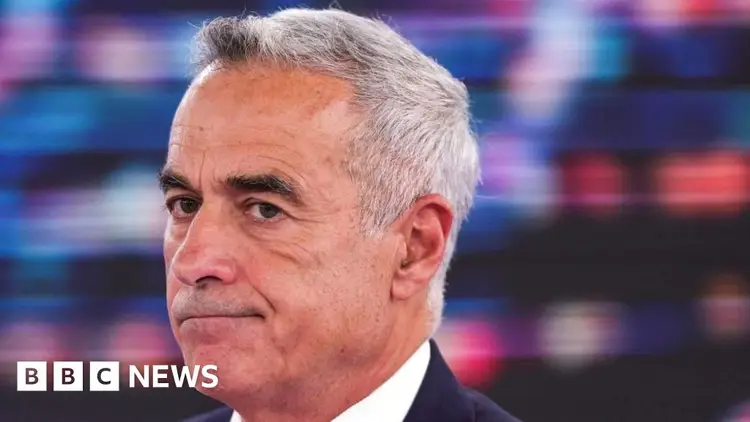Far-right candidate takes shock lead in Romania presidential election

A surprising turn has occurred in the first round of Romania's presidential election, where a far-right candidate who supports Russia is leading. Early results show that his pro-European opponent is not far behind in second place.
As of the latest count, which is 96% complete, ultranationalist Calin Georgescu is leading with 22% of the votes, while the prime minister, Marcel Ciolacu, has secured 20%, as reported by the Central Electoral Bureau.
Georgescu's impressive performance in the election, despite lacking a political party and primarily using TikTok for his campaign, took everyone by surprise.
He is set to compete against Ciolacu in a decisive presidential election on December 8.
This would create a challenging situation for the millions of Romanians who supported different candidates.
One possibility is to support Ciolacu, a populist Social Democrat and a well-known political figure, who would maintain Romania’s alignment with Western interests.
Supporting Georgescu, who has pledged to uphold Romania’s independence, is the other option.
Georgescu, who is not affiliated with any political party, has promised to put an end to what he refers to as dependence on the European Union and NATO, particularly regarding assistance for Ukraine. He has also criticized the NATO missile defense system located in Deveselu, Romania.
The outcome of this round will be revealed later on Monday, once the votes from Bucharest and the significant Romanian diaspora are tallied.
The campaign mainly highlighted the rising cost of living, as Romania has the highest proportion of people at risk of poverty within the European Union.
Exit polls published earlier on Sunday indicated that Ciolacu was significantly ahead, while the center-right contender, Elena Lasconi, was expected to secure the second position.
As it stands now, Lasconi has secured third place with 18%, while another nationalist, George Simion, is in fourth.
In Romania, the president mainly serves a symbolic function, but still holds significant sway over matters like foreign relations.
Voter participation stood at 51%, which is comparable to the rate recorded five years earlier.









































